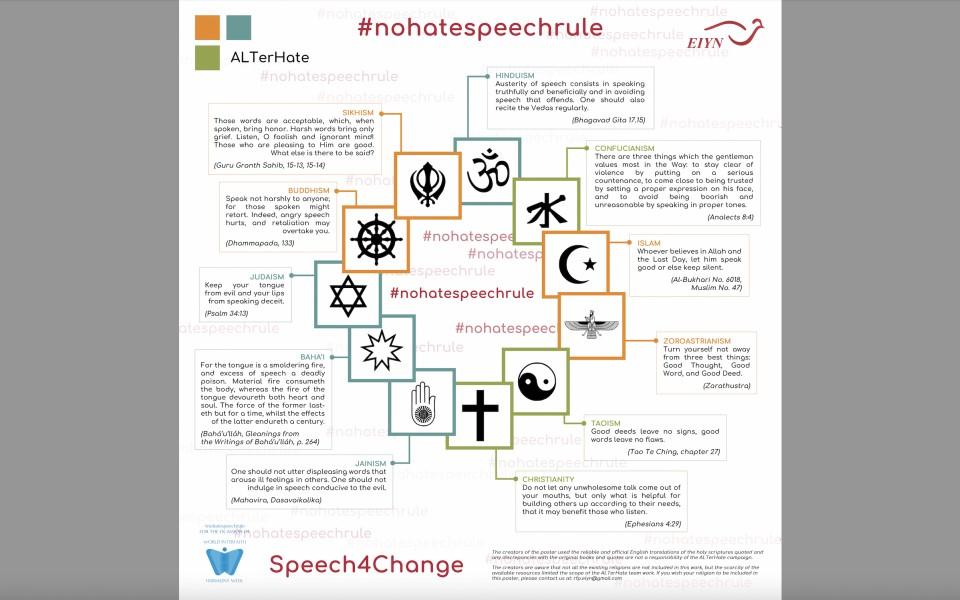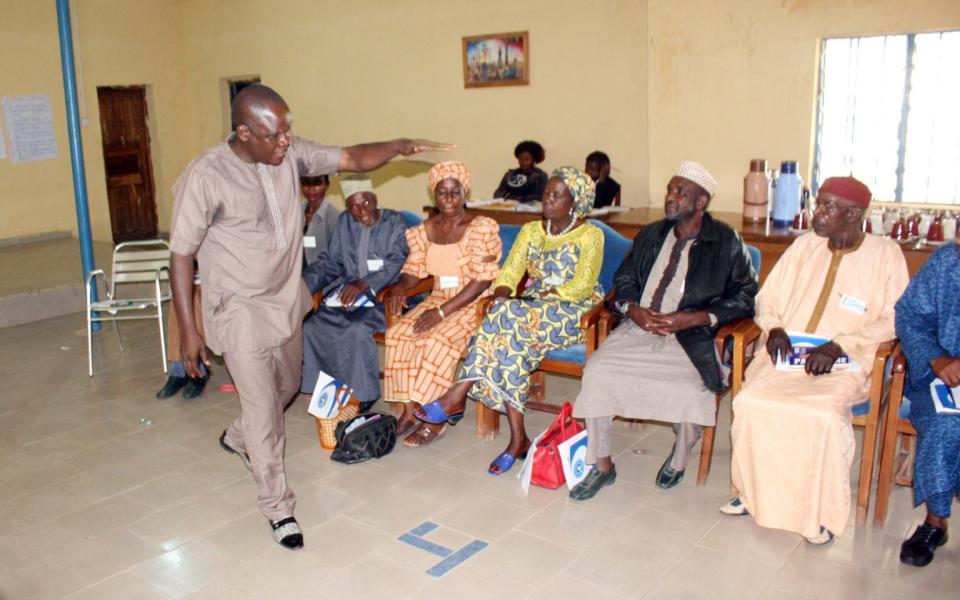Religiously Motivated Violence
Religiously motivated violence affects millions of people worldwide and includes violence perpetrated explicitly in the name of religion as well as violence committed by non-religious actors or governments against a religious minority or historically marginalized group.
Ending such violence has been a primary purpose of URI since it was founded in 2000. URI shares the view that violence, including religiously motivated violence, is a behavior that can – and must – be prevented if we are to achieve our goal of creating cultures of peace, justice, and healing.
The URI Preamble calls for mutual respect and tolerance and states that
“We unite to build safe places for conflict resolution, healing, and reconciliation.”
Indigenous, religious, and spiritual leaders and actors can play an important role in communicating that violence is not something that is inevitable or acceptable, but rather something that can be prevented. In places where there are high concentrations of religion-related violence, the URI Global Support Office stands ready to help build the capacities of Cooperation Circles to stop the spread of violence in their communities and countries.
What is religiously motivated violence?
Religiously motivated violence (RMV) refers to acts of aggression, conflict, or hostility driven or justified by religious beliefs or against individuals or communities due to their belonging to a particular faith or spiritual tradition.
To be clear, URI does not believe that religion is the cause of religiously motivated violence. But we do believe that religious, spiritual, and indigenous leaders and actors can be instrumental in helping to end religiously motivated violence.
Religiously motivated violence can take numerous forms, including:
- Sectarian and/or inter-religious violence: communal violence can be fueled by deep-seated religious or ethnic tension or politicians or groups might use religious arguments to support their arguments or generate support for their cause.
- Religious persecution: the systematic persecution of individuals or groups due to their religious identity, which aims to suppress their faith or force conversions.
- Religious extremism/terrorism: politically motivated violence against noncombatants by subnational groups or clandestine agents with a religious justification or intent.
- Hateful speech that incites violence: refers to public expressions or statements that incite violence. Hate speech is often directed toward individuals or communities based on their religious or spiritual beliefs
When individuals or groups engage in hate speech targeting a particular religion, it can contribute to a climate of intolerance and animosity, ultimately increasing the risk of religiously motivated violence. Addressing hate speech and its connection to religiously motivated violence requires efforts to promote tolerance, respect, and understanding among different religious communities and proactive measures to intervene to interrupt and stop the spread of hate speech within communities and online.
Religiously motivated violence is an increasing threat, endangering the safety, health, and well-being of all individuals where this type of violence is taking place, including in regions where our CCs operate. Interreligious violence is particularly prevalent in Sub-Saharan Africa, as well as the Central African Republic, Egypt, India, Iraq, Israel, Mali, Nigeria, Pakistan, Sri Lanka, Syria, Thailand, and Yemen. (citation)
In 2020 alone, religious groups faced harassment by governments, social groups, or individuals in 189 countries, and an estimated 80% of the world’s population cannot practice their faith without risk or restriction. Communities of faith often face physical harassment and violence and damage to their religious and cultural property.
The presence of violence is itself a hindrance to building safe spaces where people can worship freely and must be addressed proactively, creatively, and scientifically. Ending religiously motivated violence requires a comprehensive and multi-faceted approach.
Over 440 CCs work in peacebuilding and conflict transformation, including in addressing the dangers of hate speech.
Example CCs working on hate speech:
Youth for Peace CC, Bosnia and Herzegovina
Through interfaith projects, Youth for Peace contributes to peacebuilding and interfaith dialogue by highlighting the importance of young people in the process. They empower young people to be initiators of positive change in order to create a better future by building a society of equal opportunities without prejudices in local communities.

Unique Centre for Peacebuilding and Trauma Healing
As an organization, UCPT has a five-year program tagged “TRAUMA FOR PEACE,” and members have worked on different projects such as: Interfaith Relations, Alternatives to Violence Project (AVP), Trauma Healing for Internally Displaced Persons (IDPs) and Security Personnel’s, Forgiveness and Reconciliation, as well as Hate Speech and Social Media. They have also trained facilitators on trauma healing alternatives to violence projects: Do No Harm, Early Warning and Early Response, Peace Clubs, Peace Education, Dialogue and Mediation, Peace and Security, human right and advocacy, and ending violence against children.
